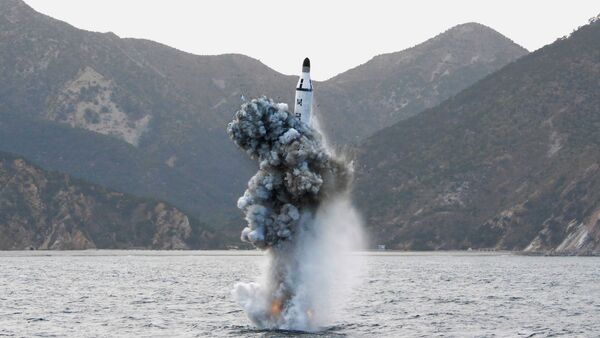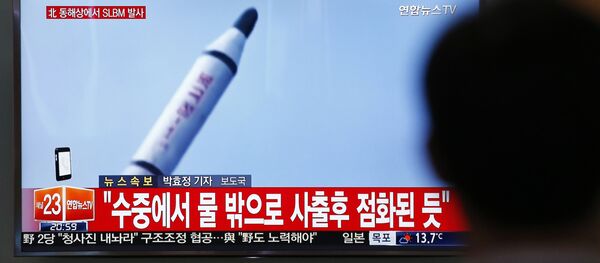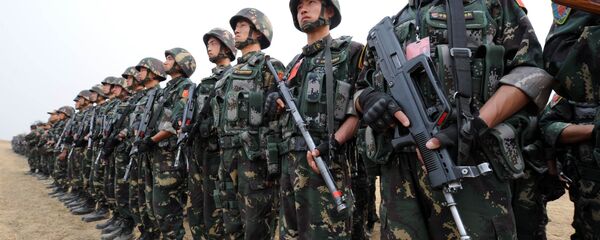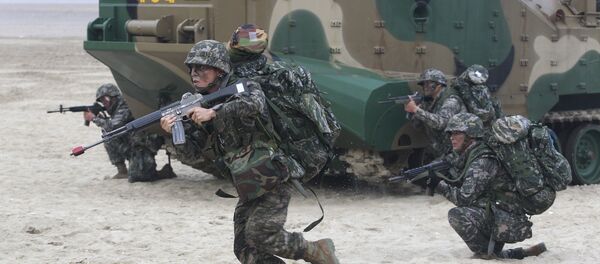On Saturday, the South Korean military claimed its northern neighbor had successfully launched a ballistic missile from a submarine in the East Sea. Speaking during a state visit to Germany over the weekend, President Obama deemed this incident "provocative."
"What is clear is that North Korea continues to engage in continuous provocative behavior, that they have been actively pursuing a nuclear program, an ability to launch nuclear weapons. And although more often than not they fail in many of these tests, they gain knowledge each time they engage in these tests," Obama said.
But while the US is ostensibly interested in having North Korea end its nuclear ambitions, the president made the curious decision to reject Pyongyang’s offer to do just that.
"It is really crucial for the United States government to withdraw its hostile policy against the DPRK and as an expression of this stop the military exercises, war exercises in the Korean peninsula," North Korea’s Foreign Minister Ri Su-yong said during a rare interview.
"Then we will respond likewise," he said.
"If we continue on this path of confrontation, this will lead to very catastrophic results, not only for the two countries but for the whole entire world," Ri added.
President Obama appears uninterested in the offer. On Sunday, he told reporters that he doubted Pyongyang’s sincerity.
"We don’t take seriously a promise to simply halt until the next time they decide to do a test," he said. "That’s not something that happens based on a press release in the wake of a series of provocative behaviors. They’re going to have to do better than that."
Since January, North Korea has carried out a series of nuclear and ballistic missile tests. These resulted in harsh new sanctions from the United Nations Security Council. Pyongyang, however, insists that the technology is necessary to defend itself against threats from the US and its key ally, South Korea.
Since the Korean War never officially ended, Washington and Seoul conduct joint military exercises annually. The drills explicitly rehearse a "preemptive strike on North Korea," according to Gregory Elich of the Korea Policy Institute, speaking to Radio Sputnik.
While tensions are high on the peninsula, both China and Russia have urged for calm.
"The situation on the Korean peninsula calls for particular alarm," Russian Foreign Minister Sergei Lavrov said during a speech at the Mongolian Foreign Ministry earlier this month.
"Pyongyang is ignoring the demands of the UN Security Council and continuing to make threats with nuclear missile experiments."





